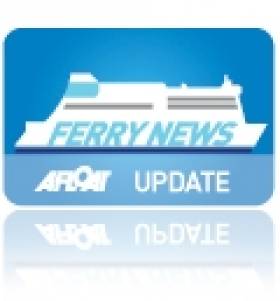Displaying items by tag: Irish Sea ferry cancellations
Scottish Ferry Sailings Suffer Storm Disruption
#FERRY NEWS - With winds of up to 100mph, Scottish ferry sailings on the North Channel routes from Northern Ireland, have been affected with two cancellations on Stena's Belfast-Cairnryan services, according to Channel 4 News.
P&O had no reported cancellations on its Irish Sea routes but is advising passengers to check in normally and expect delays. In addition some Scottish domestic ferry services were cancelled on some routes operated by Caledonian MacBrayne, while other services were disrupted.
To read more about the weather disruption across the Scottish central belt remains which remains on-high alert for storms while Northern Ireland and the north of England are subject to a severe weather warning click HERE. For the latest weather visit www.metoffice.gov.uk/
Sailing updates from Stena Line's Belfast-Cairnryan service can be viewed by clicking HERE and for information on delays on Belfast-Liverpool service click HERE. For sailing updates on routes operated by P&O click this LINK.
For the rest of the Irish Sea ferry routes, including those operated by Stena Line and Irish Ferries it would be also advisable to check each route from the operator's websites.
Irish Ferries Dublin Swift fast-ferry sailings to and from Holyhead have been cancelled, though cruiseferry sailings remain operating. To keep updated visit the 24hrs sailing update posted on the homepage of www.irishferries.com and for Irish weather coverage by visiting www.met.ie





























































